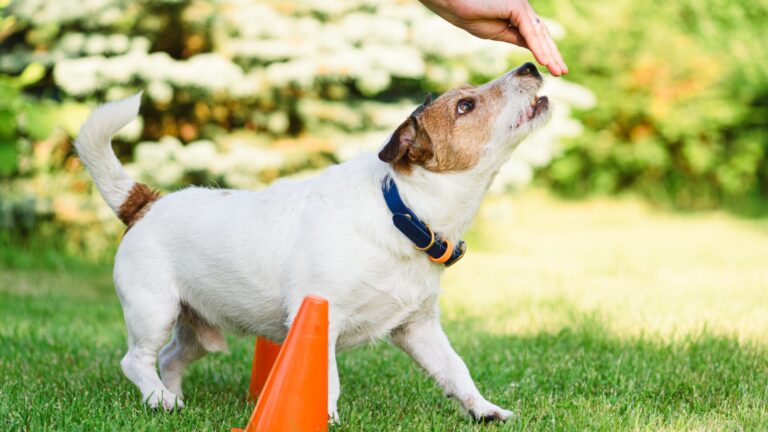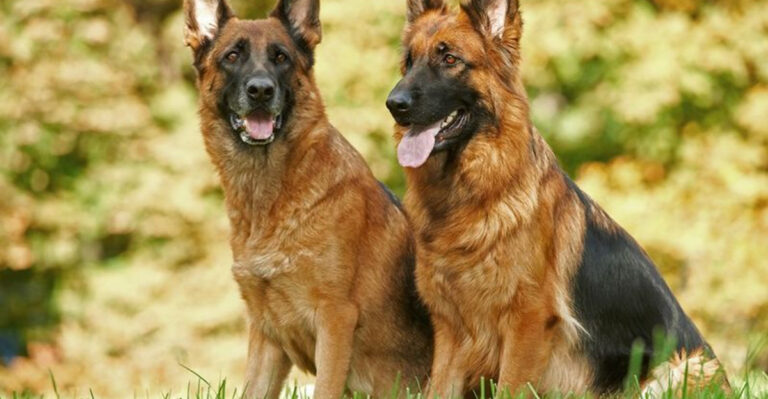15 Dog Breeds More Likely To Face Mental Health Challenges
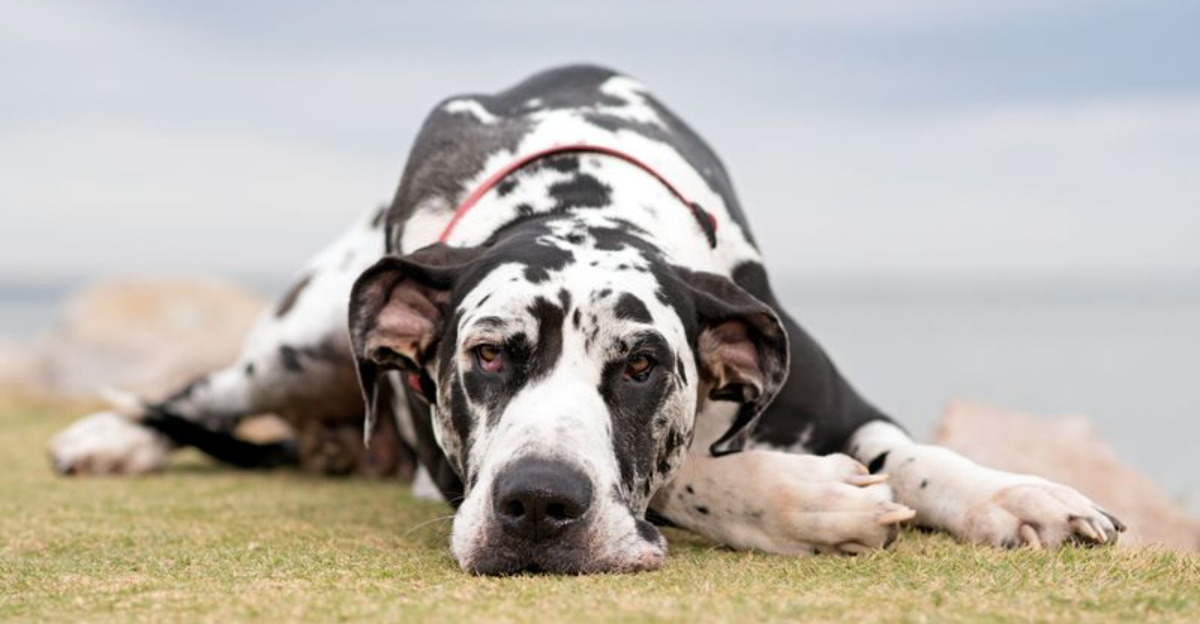
Just like humans, our furry companions can struggle with anxiety, depression, and other mental health issues. Some dog breeds are genetically predisposed to certain psychological challenges due to their intelligence, sensitivity, or breeding history.
Understanding these tendencies can help owners provide better care and support for their four-legged friends.
1. Border Collies: Too Smart For Their Own Good

Imagine having a brain that never shuts off! These herding masterminds need constant mental stimulation or they’ll invent their own entertainment – usually destructively.
Without proper challenges, Border Collies often develop compulsive behaviors like shadow-chasing or excessive barking. Their brilliance becomes their burden when boredom strikes.
2. German Shepherds: When Loyalty Becomes Obsession
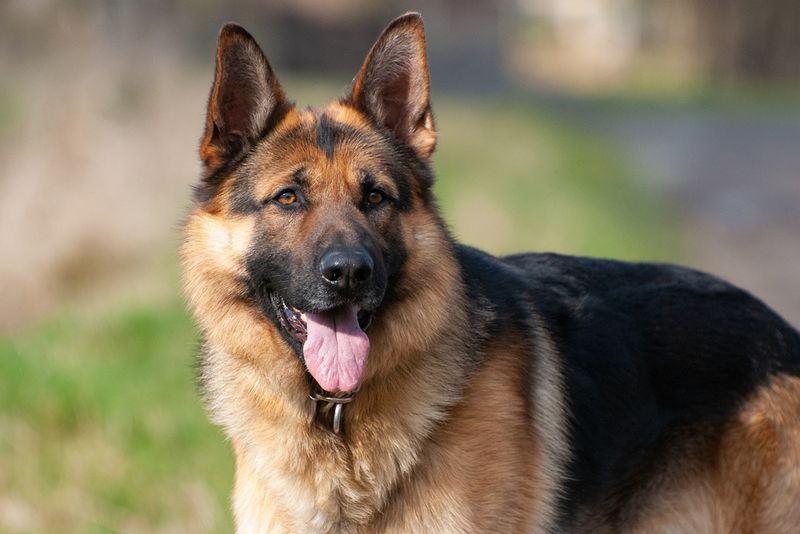
Fiercely devoted protectors who can’t bear separation from their humans. Their working-dog heritage means they’re hardwired to have a job – any job – or they spiral into destructive anxiety.
Watchful by nature, German Shepherds easily tip from alert to paranoid without proper socialization. Their protective instinct can morph into fearfulness without careful guidance.
3. Cavalier King Charles Spaniels: Hidden Heartache

Behind those melting brown eyes lurks a surprising tendency toward anxiety. Sweet-natured to a fault, these sensitive souls become overwhelmed by harsh environments or voices.
Their people-pleasing nature makes them internalize stress rather than act out. Many develop separation anxiety so severe they can’t function alone for even short periods.
4. Bichon Frise: The Velcro Dog’s Dilemma

Fluffy white clouds of joy? Sometimes. These companion-bred pups often develop extreme attachment issues, becoming genuinely distressed when left alone.
Their history as lap dogs means they weren’t bred for independence. Bichons frequently struggle with debilitating separation anxiety that can manifest as destructive behavior, excessive barking, or even self-harm.
5. Doberman Pinschers: The Sensitive Guardians

Surprisingly, Dobermans are powerful protectors with a sensitive side. Intense bonds with their families can lead to anxiety when separated.
High intelligence often causes them to overthink, leading to stress-related behaviors. Compulsive actions like flank-sucking are common when their mental needs are not met.
6. Australian Shepherds: Energy Overload
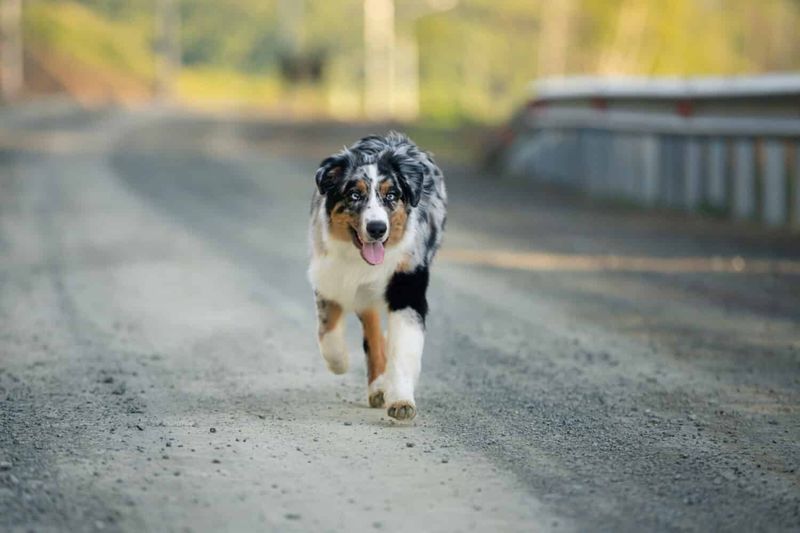
Bouncing balls of endless energy with minds that race faster than their paws. Without sufficient outlets, these herding wizards become neurotic and develop repetitive behaviors.
Their intelligence becomes problematic when paired with boredom. Aussies are notorious for developing obsessive tendencies like tail-chasing, shadow-chasing, or compulsive barking when their mental and physical needs go unmet.
7. Shetland Sheepdogs: The Noise-Phobic Herders
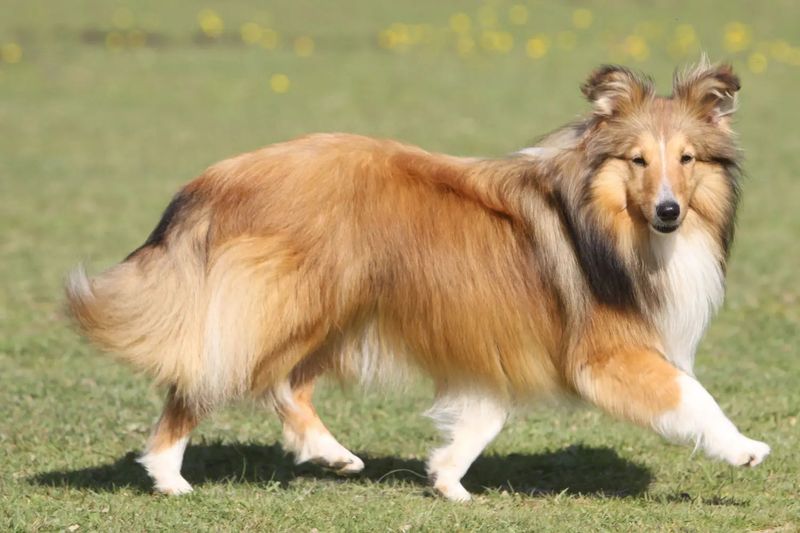
Thunder makes them tremble! These sensitive herders often develop noise phobias that can escalate into full-blown panic attacks during storms or fireworks.
Their acute hearing and sensitive nature make them particularly vulnerable to sound-related anxiety. Many Shelties struggle with generalized anxiety that manifests as excessive barking, hiding, or compulsive behaviors.
8. Great Danes: Gentle Giants With Big Fears
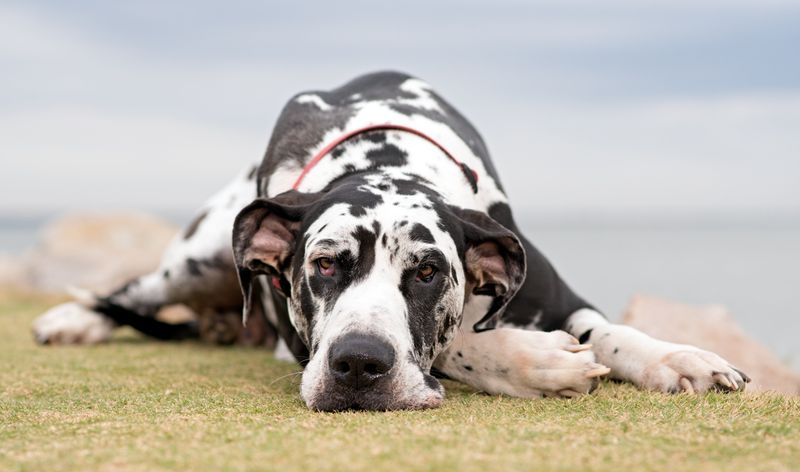
Despite their imposing size, many Great Danes are surprisingly fearful. Beneath their massive bodies lies a sensitive nature that can be easily traumatized.
Early socialization plays a crucial role, as these giants are prone to developing irrational fears. Anxiety can become especially problematic due to their large size, with a panicking Great Dane potentially causing significant damage or injuring themselves.
9. Chihuahuas: Small Dog, Supersized Stress

Those famous trembles aren’t always from cold! The world looks enormous when you’re tiny, and many Chihuahuas develop anxiety from feeling perpetually vulnerable.
Their small size and big personalities create a perfect storm for stress. Often overly attached to one person, these pocket-sized pups frequently suffer from separation anxiety and fear-based aggression toward strangers or other animals.
10. Cocker Spaniels: Sensitive Souls In Silky Coats

Those soulful eyes aren’t just for show – Cockers feel everything deeply. Historically bred as sensitive hunting companions, they’re easily wounded by harsh training or environments.
Their gentle nature makes them prone to anxiety and depression when faced with conflict. Many develop a condition called “rage syndrome,” where they experience unpredictable mood swings due to neurological issues.
11. Greyhounds: Racing Minds That Can’t Slow Down
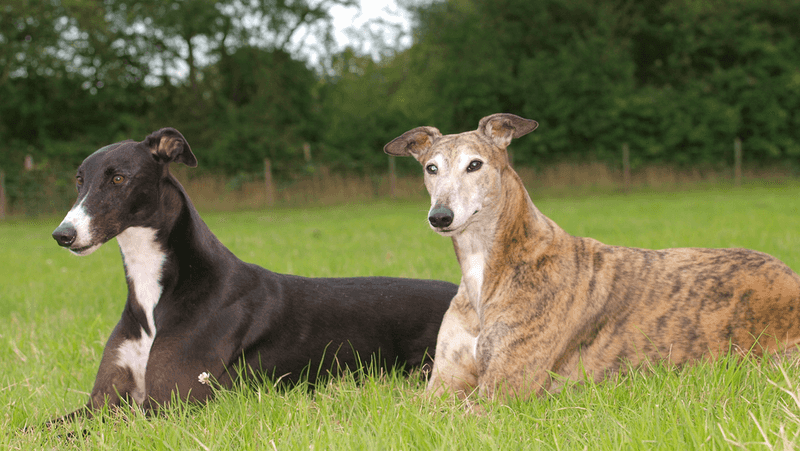
Retired racers often carry invisible emotional scars. After lives spent in kennels with limited socialization, many struggle to adjust to home environments and develop severe anxiety.
Everyday objects like stairs, glass doors, or even reflective floors can trigger panic. Their sensitive nature and racing background make them particularly prone to noise phobias and generalized anxiety.
12. Poodles: The Perfectionists’ Burden

Wickedly smart and surprisingly sensitive, these curly-coated brainiacs often develop anxiety due to their perfectionist tendencies. Everything is noticed by them, which can lead to overwhelm when routines change.
Intelligence becomes a liability when overthinking situations. Noise sensitivities are common in Standard Poodles, and they may develop compulsive behaviors like spinning or tail-chasing if their mental needs aren’t met.
13. Vizslas: The Velcro Dogs Who Can’t Let Go

Known as “velcro dogs” for good reason! These Hungarian pointers form such intense bonds with their people that being alone feels like torture to them. Their neediness isn’t just annoying – it’s a genuine mental health concern.
Vizslas commonly develop severe separation anxiety that can lead to destructive behaviors, excessive vocalization, or even self-harm when left alone.
14. Miniature Schnauzers: The Territorial Worriers

Alert watchdogs by nature, these bearded sentries can tip from vigilant to neurotic without proper guidance. Their territorial instincts often evolve into anxiety about anything approaching their domain.
Small dog syndrome hits this breed hard. Many Mini Schnauzers develop obsessive barking rituals, resource guarding, or separation anxiety when their security concerns aren’t properly managed through training and socialization.
15. Bernese Mountain Dogs: Gentle Giants With Fragile Hearts
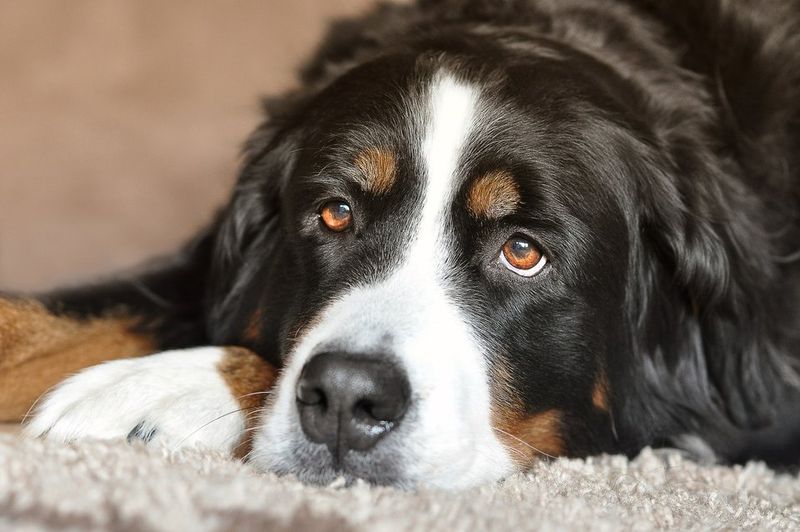
Surprisingly sensitive for their size, these mountain dogs form strong emotional bonds and struggle with separation. A sweet temperament makes them vulnerable to emotional distress.
People-oriented by nature, they face challenges when separated from their humans. Anxiety often manifests in Berners as destructive chewing, excessive drooling, or depression, especially when left alone or during major life changes.



